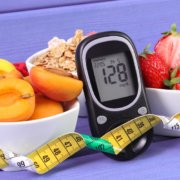Crohn’s and Colitis Awareness Week
By Stephanie Olzinski, RDN
Crohn’s Disease and Ulcerative Colitis (UC) are both forms of inflammatory bowel disease (IBD) that cause inflammation in the gastrointestinal tract. People with these conditions can have moderate to severe symptoms and Crohn’s and UC currently affect over 780,000 and 900,000 Americans, respectively. Some people may go undiagnosed, however knowing the symptoms can help you determine which you suffer from and how to get help.
UC is characterized by affecting the large intestine and rectum whereas Crohn’s can affect any part of the gastrointestinal tract, but commonly at the site between the small and large intestines.
When examining symptoms, most people experience:
- abdominal pain.
- bloating.
- inflammation.
- diarrhea with or without blood and/or mucus.
- weight loss.
- anemia.
Nutrition plays a large role in managing symptoms of Crohn’s and UC as some foods or beverages can either help or worsen symptoms. Meeting with a Registered Dietitian at NOAH can help with determine the right personalized plan for you.
For Crohn’s disease, some people need a higher calorie and protein diet to maintain nutritional needs. Certain fibers should be limited, as well as fatty and spicy foods.
For UC, consume more:
- fibers from whole grains, fruits, and vegetables.
- probiotic foods like yogurt and sauerkraut.
The same triggers for Crohn’s can affect those with UC as well. Recording a journal that highlights foods/beverages consumed alongside the types of symptoms and when they occur can be great to review with your dietitian. He or she can determine what triggers your symptoms as well as provide recommendations of a healthy diet that fits your specific needs.










